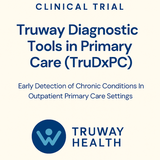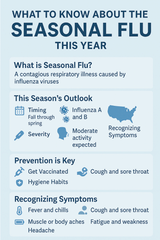The Power of Preventive Care: Why Regular Check-ups Matter
In our fast-paced lives, it's easy to overlook the importance of regular check-ups and preventive care. We often prioritize addressing health issues only when they become noticeable or bothersome. However, embracing a proactive approach to healthcare by scheduling routine check-ups can have a profound impact on our overall well-being. Preventive care plays a vital role in detecting potential health risks early, managing chronic conditions, and promoting long-term health and vitality. In this blog post, we will explore the power of preventive care and why regular check-ups truly matter.
Early Detection and Prevention:
One of the primary benefits of regular check-ups is the opportunity for early detection and prevention of various health conditions. During these visits, healthcare professionals can identify potential problems before they manifest into serious illnesses. Through screenings, tests, and comprehensive physical examinations, doctors can detect warning signs of conditions such as high blood pressure, diabetes, heart disease, and certain types of cancers.
Detecting health issues early provides an advantage for effective treatment, often leading to better outcomes and a higher chance of full recovery. Preventive care can also help identify risk factors and enable individuals to make necessary lifestyle changes or receive interventions to mitigate potential health threats.
Managing Chronic Conditions:
For individuals with chronic health conditions, regular check-ups are crucial for effective disease management. Conditions such as diabetes, hypertension, asthma, and arthritis require ongoing monitoring to ensure they are under control. Through regular visits, healthcare providers can assess the effectiveness of treatment plans, adjust medication dosages, and recommend lifestyle modifications to optimize the management of these conditions.
Moreover, routine check-ups offer an opportunity for patients to discuss any challenges or concerns they may be facing in coping with their chronic condition. Doctors can provide guidance, offer support, and suggest new strategies to enhance the individual's quality of life.
Promoting Overall Wellness:
Preventive care is not limited to disease detection and management—it also promotes overall wellness. During check-ups, healthcare professionals evaluate various aspects of an individual's health, including physical, mental, and emotional well-being. They address any concerns, provide counseling on healthy lifestyle choices, and offer guidance on nutrition, exercise, stress management, and sleep habits.
By actively engaging in preventive care, individuals can take charge of their health and adopt preventive measures to reduce the risk of developing certain diseases. It empowers people to make informed decisions regarding their lifestyle and take steps towards a healthier future.
Building Doctor-Patient Relationships:
Regular check-ups foster strong doctor-patient relationships, which are essential for personalized and effective healthcare. Through consistent visits, individuals develop a rapport with their healthcare providers, enabling them to communicate openly and honestly about their health concerns. Doctors, in turn, gain a deeper understanding of their patients' medical history, lifestyle choices, and individual needs.
These relationships contribute to a more holistic and comprehensive approach to healthcare. Doctors can provide personalized advice, address specific concerns, and tailor preventive care strategies according to each patient's unique circumstances. Such collaboration and trust are invaluable for both parties involved.
Cost-Effective Approach:
In addition to its numerous health benefits, preventive care can also result in significant cost savings. Detecting and treating health conditions in their early stages is generally more affordable than addressing advanced diseases that require complex interventions or prolonged treatments. Regular check-ups can help identify potential health risks before they become severe, potentially reducing medical expenses in the long run.
Regular check-ups and preventive care are not mere inconveniences but powerful tools for maintaining and improving our health. By investing in proactive healthcare, we can detect potential health problems early, manage chronic conditions effectively, and enhance our overall well-being. Taking a preventive approach empowers individuals to make informed decisions about their health, promotes long-term wellness, and fosters strong doctor-patient relationships. Let's prioritize our health by embracing the power of preventive care and scheduling those routine check-ups—it's a decision that can make all the difference in our lives.
Truway Health News & Insights
Breathe, Refuel, Recharge: Finding Your Daily Balance
Written by Perry JohanssenPublished and Edited by Truway Health Life rarely slows down on its own. B...
Truway Health Launches “ImmuneNet”: A New Era in Quantum-Synaptic Immunotherapy
Reimagining How Immunity Can Be Understood and Guided At Truway Health, innovation never sleeps.Toda...
Announcing the HEALTH Trial: Humanoid Evaluation and Learning in Healthcare
Published by Truway Health, Inc.Principal Investigator: Gavin SolomonClinicalTrials.gov Identifier:...
We’re thrilled to launch our first-ever clinical trial of TruDxPc
Study Identification Protocol ID: TRHW-DX-001 Brief Title: Truway Diagnostic Tools in Primary Ca...
What to Know About the Seasonal Flu This Year
As cooler weather sets in, flu season returns. Each year brings new strains, evolving guidance, and...
Gamification and Health: Turning Wellness Into a Daily Game
Introduction For many people, staying healthy feels like a chore: eating clean, exercising regularly...







